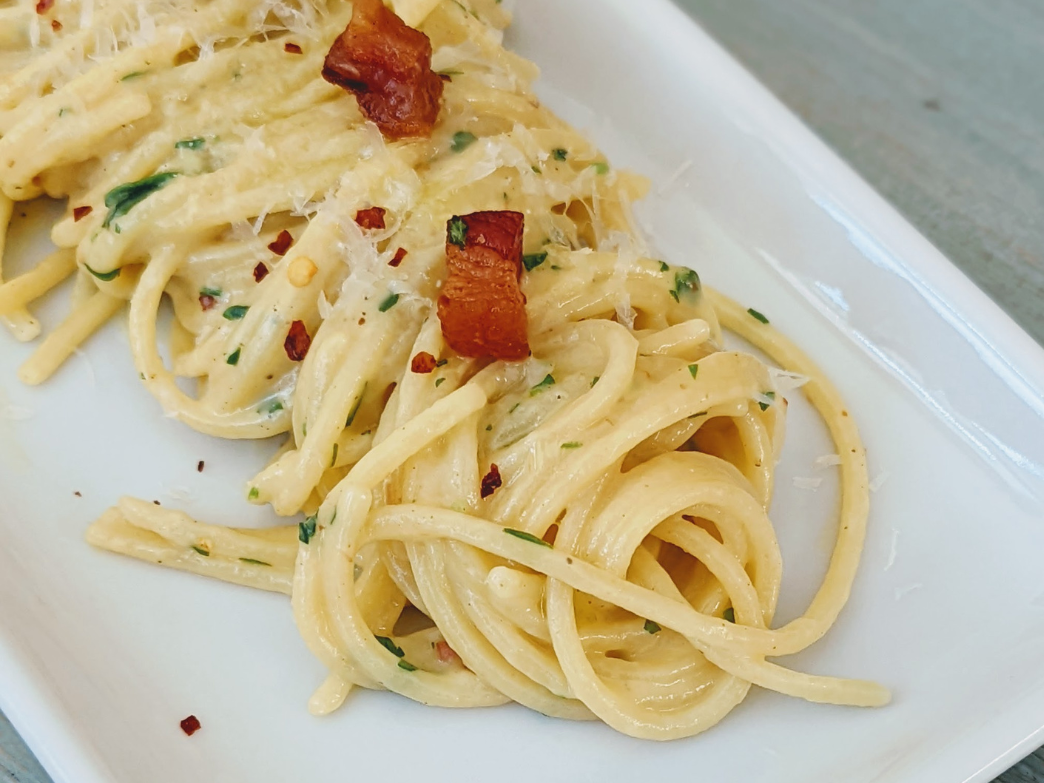By Dr. Jorge, Ph.D.
Do you want to know if you can still indulge in your favorite pasta dish during pregnancy? Or perhaps you’ve just noticed new pasta cravings since becoming pregnant and are curious as to why. Keep reading to find out what pregnancy cravings could mean and whether it’s safe to eat pasta during pregnancy.
Do you crave pasta when pregnant? Why do I crave pasta during pregnancy?
Food cravings are common in pregnancy and often include pasta cravings. The exact cause of specific cravings during pregnancy is unknown, but experts believe cravings are the result of hormonal changes and the body’s nutritional needs. It is suggested that pregnancy hormones can heighten your sense of taste and smell, which can lead to certain cravings. It is also believed that specific nutrient deficiencies can trigger cravings for certain foods that are a good source of the nutrients your body is lacking.
Is it safe to eat pasta during pregnancy? Should I avoid pasta while pregnant?
Pasta is safe to eat while pregnant as it is not on the list of foods doctors advise avoiding or limiting consumption of during pregnancy. Although white pasta and whole grain pasta are equally safe to eat, whole-grain pasta may be a healthier choice. Foods made with whole grains are an excellent source of fiber, iron, and folic acid – all of which are beneficial to both mother and baby.
Is it healthy to eat pasta during pregnancy? Is pasta good for you when pregnant?
Pasta is healthy to eat during pregnancy. Eating 6 to 11 servings of bread and grains daily is recommended as part of a balanced diet during pregnancy. Consuming pasta, especially whole grain pasta, is one way to help you get the necessary amount of grains and carbohydrates in your diet. Additionally, bland foods high in carbohydrates, like plain pasta, may help combat morning sickness.
Can I eat pasta with gestational diabetes?
Yes, you can still eat pasta if you have gestational diabetes, but you should opt for whole wheat or whole grain pasta varieties. Whole grain pasta won’t cause blood sugar spikes the way traditional pasta could. This is because whole grains are digested by the body slower than refined grains in white pasta. Even so, those with gestational diabetes should keep pasta portions to 45–60 grams of carbohydrates per meal. Please discuss with your medical provider for more details.
What can make pasta dishes healthier during pregnancy?
In addition to substituting white pasta for whole wheat or whole grain options, pasta pairings can be carefully selected to enhance the nutritional value of your pasta dish. For instance, adding veggies and lean proteins, such as fish and chicken, to a pasta dish is a great way to make it healthier during pregnancy.
Can I eat raw pasta while pregnant? Can I eat undercooked pasta while pregnant?
Most boxed pasta is pasteurized before it is dried, limiting the risk of bacterial growth that can be especially harmful while pregnant. However, eating this kind of pasta uncooked is still not recommended as it can be difficult to eat and digest, limiting the absorption of any nutrients. If you start to have raw or undercooked pasta cravings while pregnant, you should consult your doctor right away.
Pregnant women should exercise additional caution when preparing homemade pasta because the dough contains raw eggs and flour, both of which can harbor harmful bacteria. Raw pasta dough should never be eaten while pregnant as it poses the risk of salmonella and E. Coli contamination. Before eating your homemade pasta, be sure the pasta is completely cooked through.
Can I eat cheesy pasta during pregnancy? Can I eat ravioli or ricotta-filled pasta during pregnancy?
You can eat certain types of cheesy pasta during pregnancy, depending on the type of cheese. Cheese that is safe to eat includes hard or pasteurized cheeses like parmesan, mozzarella, ricotta, and hard goat cheese. When selecting a cheese during pregnancy, confirm that the label states it has undergone pasteurization. Ricotta-filled pasta tends to be safe for pregnancy since ricotta is often made using pasteurized milk. Similarly, ravioli is safe to eat during pregnancy if the filling contains pasteurized ingredients.
On the other hand, most soft cheeses like brie and blue cheese should be avoided during pregnancy as these are often made with unpasteurized milk which can contain listeria bacteria.
Can I eat spaghetti during pregnancy? Can I eat spaghetti and meatballs during pregnancy?
Yes, you can eat spaghetti during pregnancy, but you should ensure it is thoroughly cooked before consuming. Similarly, meatballs are safe to eat while pregnant but should be cooked thoroughly before eating.
What are the side effects of eating pasta during pregnancy?
Eating pasta during pregnancy has no known side effects when done in moderation. On the other hand, if you have gestational diabetes, consuming white pasta or too much pasta might raise your blood sugar levels. Please discuss healthy eating with your medical provider when you are pregnant.
Where can I buy healthy pasta online?
At Wildgrain, we specialize in making high-quality, fresh pasta that is delivered directly to your door. Wildgrain is the first bake-from-frozen delivery subscription service for breads, rolls, pastries, and fresh pastas. Some of our popular pastas include fresh fettuccine, fresh rigatoni, fresh tonnarelli, and cheese tortellini. Learn more about Wildgrain and our artisanal baking and cooking methods.
About the Author
This content is for informational use only and does not replace professional nutrition and/or medical advice, diagnosis or treatment. It is not a substitute for and should not be relied upon for specific nutrition and/or medical recommendations. Please talk with your doctor about any questions or concerns.



